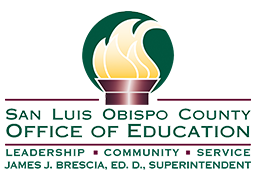Educational Equity for Students in Foster Care
Youth in the foster care system are just like every other student. They want to do well in school – get good grades, have fun with their friends, attend prom, and go to college. But foster youth face unique and significant challenges – many of which are outside of their control. One of the biggest challenges for foster youth is their high mobility. Foster youth change foster homes frequently and often must transfer to new schools. On average, foster youth change schools eight times while in the foster care system. Each school change results in four to six months of lost education, delays in enrollment, lost educational records, and loss of high school credits.
As a group, foster youth have more absences, lower test scores, lower grades, and higher suspension and expulsion rates. With all this disruption to their education, it is not a surprise that youth in foster care have the lowest graduation rate among all student subpopulations in California. Current education laws are in place to address these inequities, but schools can do more to ensure educational equity for foster youth.
Schools can offer additional interventions that address the unique challenges of high student mobility and, another significant challenge for foster youth, exposure to chronic, toxic stress or trauma.
To achieve educational equity, schools need to help foster youth feel safe, stable, and supported at school. We can achieve this by:
- helping new students feel welcomed and provide a sense of belonging to their new school.
- ensuring that the district Foster Youth Liaison has adequate time and knowledge to support foster youth.
- using a team approach to create an education plan that includes the foster youth, Education Rights Holder (often the biological parent), caregiver, school counselor, district Foster Youth Liaison, and social worker or probation officer.
- establishing a policy and data infrastructure necessary to identify, support, and monitor the educational success of foster youth.
- ensuring foster youth receive academic counseling and emotional support to help cope with trauma.
- becoming a “Trauma Informed School” by offering professional development to all school staff. Trauma Informed Practices for Schools is a free training for any district or school that makes a request (contact Jessica for more information).
Here are some additional resources for more information.
- Foster Youth Education Rights
- California Foster Care Education Law Fact Sheets
- CDC Adverse Childhood Experiences Web Page
- Improving Education for Youth in Foster Care, American Bar Association
- Foster Youth Education Toolkit, Alliance for Children’s Rights
Jessica Thomas
Program Coordinator, Homeless and Foster Youth Services
San Luis Obispo County Office of Education
jthomas@slocoe.org
805-782-7268
Contact
- San Luis Obispo County Office of Education
- Office of James J. Brescia, Ed.D.
- 3350 Education Drive
- San Luis Obispo, CA 93405
- Tel: 805-543-7732
- Contact SLOCOE
- Contact Webmaster

